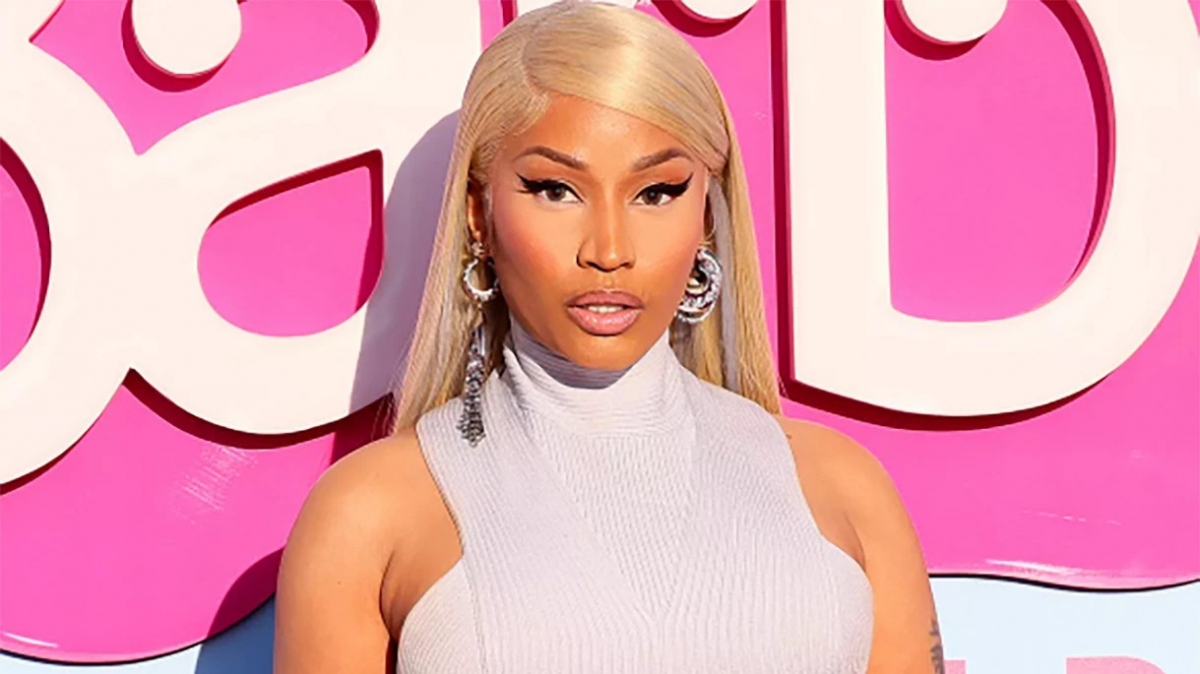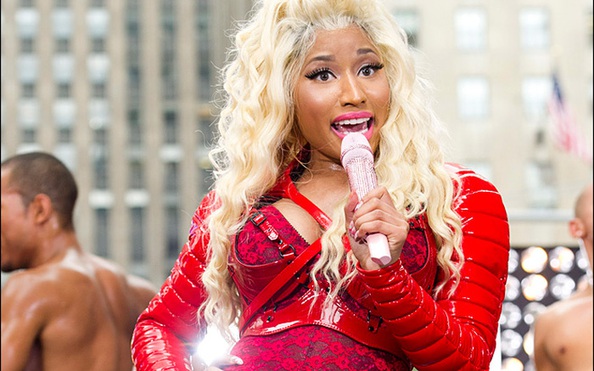Nicki Minaj, the queen of unapologetic comebacks, has once again proved that her sharp tongue is as legendary as her music career. The rapper recently engaged in a fiery exchange with DTLR radio host Fadam Got Da Juice after he suggested that she sidestepped a question during an interview about Black unity. What followed was a social media storm, with fans taking sides and the internet buzzing over Minaj’s characteristically savage response.
Here's ads banner inside a post
The Interview: A Tense Beginning
The controversy stems from an interview where Minaj sat down with Fadam Got Da Juice to discuss a range of topics, including Black unity. Known for her candid and often philosophical takes, Minaj was quick to point out that unity, whether among Black people or humanity at large, is a complex issue.
“Do we have unity amongst human beings?” Minaj asked rhetorically. “If it’s eight billion people in the world, imagine thinking all eight billion people gon’ get along with each other. I used to be a waitress. It was a bunch of people not getting along in there. No matter where you go, you’re going to be at odds with people. I think the point, though, is when you get to a place where nothing around you affects what’s inside of you.”
Her nuanced response highlighted the difficulties of achieving universal harmony and emphasized the importance of inner peace. However, it seems that not everyone was satisfied with her answer.
Here's ads banner inside a post

The Comment That Ignited the Feud
After the interview aired, Fadam Got Da Juice commented on X (formerly Twitter) that Minaj had “ducked the smoke” on his question about Black unity. “She ducked the smoke on the question man. I had to take the shot though,” he wrote in response to a tweet by Elliott Wilson, who praised him for landing the high-profile interview.
Minaj, never one to shy away from addressing criticism directly, caught wind of the comment and wasted no time clapping back. In a scathing reply to her 28 million followers, she delivered a response that was both cutting and memorable:
Here's ads banner inside a post
“The obsession. Only thing I ducked was his fkng breath. Smelled like a double portion of 4 wings & some french fries, hot A– & ketchup n—-.”

Fans Rally Behind Nicki Minaj
The internet exploded in the aftermath of Minaj’s fiery response. Fans of the rapper, known as the Barbz, took to social media to defend her and mock the radio host. Many pointed out that Minaj’s body language during the interview suggested she was already unimpressed with the host.
“She was side-eyeing him the whole time! Nicki knew what was up from the beginning,” one fan tweeted.
“Imagine trying Nicki Minaj and thinking you’re going to come out unscathed. Rookie mistake,” another chimed in.
The piling on didn’t stop there. Fans flooded Fadam Got Da Juice’s social media accounts with insults and memes, turning the moment into yet another example of Minaj’s dominance both in the music industry and online culture.

A History of Fiery Feuds
This isn’t the first time Nicki Minaj has found herself at the center of controversy or engaged in a war of words. Over the years, she has had high-profile disputes with fellow artists, critics, and media personalities. From her feud with Miley Cyrus at the MTV Video Music Awards to her ongoing clashes with other female rappers, Minaj has made it clear that she won’t tolerate disrespect.
Her response to Fadam Got Da Juice is emblematic of her approach: direct, unapologetic, and laced with humor. For Minaj, these moments are less about controversy and more about maintaining her authenticity, something her fans admire and her critics often underestimate.
The Question of Black Unity
While the drama surrounding Minaj’s response has dominated headlines, it has also overshadowed the initial question about Black unity. Minaj’s remarks during the interview pointed to a broader, more philosophical perspective on unity that went beyond racial lines.
By suggesting that conflict is an inevitable part of human interaction, Minaj highlighted the complexity of unity in any context. Her focus on achieving personal peace rather than external validation resonated with some viewers, though it clearly didn’t satisfy the radio host.
The episode has sparked broader discussions about how celebrities engage with important social issues. Some argue that Minaj’s response was thoughtful and realistic, while others feel that public figures like her have a responsibility to take a clearer stance on issues affecting their communities.

Public Figures and Accountability
The incident raises important questions about the role of celebrities in shaping public discourse. As one of the most influential figures in music, Minaj’s words carry weight, and her fans often look to her for guidance on social and cultural issues. While her philosophical take on unity was nuanced, the fallout from her clapback demonstrates the challenges celebrities face in balancing authenticity with public expectations.
Critics of Minaj argue that her response to Fadam Got Da Juice detracted from the gravity of the original question. Supporters, however, see her clapback as a justified reaction to what they perceive as a disrespectful and unnecessary critique.
:max_bytes(150000):strip_icc():focal(809x109:811x111)/nicki-minaj-1-dc41c65d3d7a4c2e80ab129af0793b76.jpg)
A Lesson in Celebrity Culture
Nicki Minaj’s latest feud is a microcosm of the dynamics between celebrities, media, and fans. In an age where social media amplifies every word and gesture, public figures must navigate a minefield of expectations and scrutiny. For Minaj, the incident is just another chapter in a career defined by her willingness to speak her mind, no matter the consequences.
As the internet continues to dissect the exchange, one thing is clear: Nicki Minaj remains a force to be reckoned with, both in music and in the art of the clapback. Whether you view her response as over-the-top or perfectly justified, it’s impossible to deny that Minaj knows how to command attention — and leave her critics reeling.

